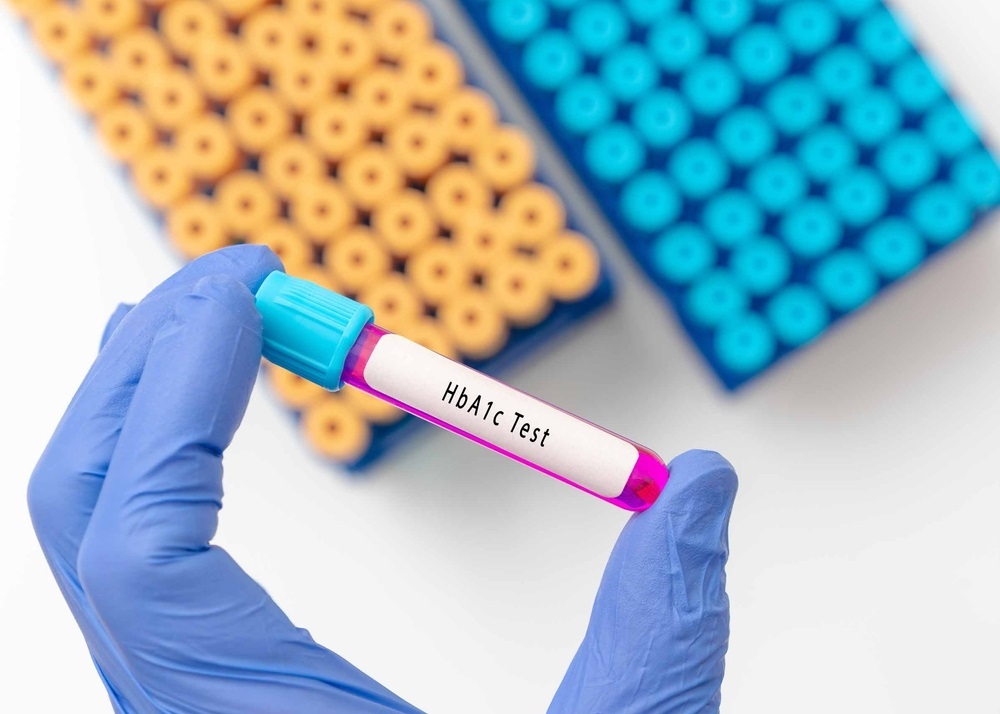Search for
SupportStress Management Techniques for Women with PCOD

PCOD, or polycystic ovarian disease, is a condition involving hormonal imbalance, which affects a woman's reproductive system. It's one of the most common hormonal issues among women of childbearing age, affecting around 10% of this population.
Here's a quick breakdown of what happens in PCOD:
- Hormonal Imbalance: The main culprit in PCOD is an overproduction of androgens, the male sex hormones typically present in small amounts in women. This disrupts the balance of female hormones like oestrogen and progesterone.
- Cysts on Ovaries: The name "polycystic" refers to the numerous small cysts that may form in the ovaries.
- Irregular Periods: A key symptom of PCOD is irregular or infrequent periods due to problems with ovulation, the release of an egg from the ovary.
Chronic stress triggers the release of cortisol, a hormone that can worsen insulin resistance, a common feature of PCOD. This further disrupts the hormonal balance. Stress can worsen symptoms like irregular periods, acne, and mood swings experienced by many women with PCOD. The combination of PCOD and stress can, therefore, significantly impact a woman's physical and mental well-being.
Understanding Stress and PCOD
The relationship between stress, inflammation, and PCOD is complex. Our bodies are equipped to handle short bursts of stress. When faced with a challenge, the adrenal glands release cortisol, which fuels the fight-or-flight response. However, if this stress becomes chronic, it keeps cortisol levels elevated, disrupting the delicate hormonal balance in women with PCOD.
Here's how increased cortisol levels affect hormonal balance:
- Androgen Overload: Elevated cortisol can stimulate the ovaries to produce more androgens, the male sex hormones already present in excess in PCOD. This further disrupts the oestrogen-progesterone ratio, leading to irregular periods, acne, and unwanted hair growth.
- Insulin Resistance: Cortisol can also hinder the body's use of insulin effectively. Insulin resistance is a hallmark symptom of PCOD, contributing to weight gain and further hormonal imbalance.
Chronic stress also triggers low-grade inflammation, which can worsen insulin resistance, a key player in PCOD. Additionally, inflammation can disrupt the delicate ovarian environment, potentially impacting ovulation and hormone production. This exacerbates PCOD symptoms like irregular periods, mood swings, and difficulty in weight management.
While stress may not be the sole cause of PCOD, managing it can significantly improve your overall well-being and potentially lessen the severity of PCOD symptoms.
The Importance of Stress Management
For women living with PCOD, stress management isn't a luxury, it's a necessity. The complex interplay between stress and PCOD creates a vicious cycle, where stress exacerbates symptoms that then contribute to further stress. However, the good news is, that by prioritising stress management techniques, women with PCOD can experience the following significant improvements in their overall well-being and quality of life:
- Reduced androgen production
- Improved insulin sensitivity
- Managing inflammation
- Regulated periods
- Improved mood
- Weight management
- Better sleep
Stress Management Techniques
- Mindfulness and Meditation
Mindfulness involves focusing on your thoughts, feelings, and bodily sensations in a non-reactive way. By cultivating an awareness of your inner experience, you can gain a sense of detachment from stressful thoughts and emotions.
Benefits of mindfulness for stress reduction:
- Reduced stress hormones
- Improved emotional regulation
- Increased focus and clarity
- Enhanced self-compassion
Here are some meditation techniques specifically tailored for women with PCOD:
- Body Scan Meditation: This practice involves focusing your attention on different parts of your body, and noticing any physical sensations without judgment. This can be particularly helpful for women with PCOD who experience physical discomfort due to the condition.
- Mindful Breathing: Pay attention to your breath, noticing the rise and fall of your chest or abdomen. Gently bring your attention back to your breath every time your mind wanders. This simple yet effective technique can anchor you in the present moment and promote relaxation.
- Mantra Meditation: Silently repeat a calming word or phrase like "Om" or "peace" while focusing your attention on the sound. This can help quiet the mind and promote feelings of serenity.
- Loving-Kindness Meditation: Direct positive thoughts and well-wishes towards yourself, others you care about, and even neutral individuals. This practice fosters self-compassion and reduces feelings of negativity.
- Exercise and Physical Activity
For women with PCOD, exercise isn't just about physical health; it's a potent tool for stress management. Physical activity offers a double win, combating stress while also improving PCOD symptoms by benefitting the mind and body with:
- Endorphin release
- Improved focus
- Sense of accomplishment
- Sleep enhancement
- Improved insulin sensitivity
- Weight management
- Reduced inflammation
Making exercise a regular habit is crucial for reaping the stress-busting and PCOD-managing benefits. Here are some tips:
- Choose activities you find fun and engaging, for example, dancing, swimming, and brisk walking.
- Don't try to overhaul your routine overnight. Begin with short bursts of activity, gradually increasing the duration and intensity as your fitness level improves.
- Aim for at least 30 minutes of moderate-intensity activity most days of the week, but even shorter bursts can be beneficial.
- Having a workout partner can provide accountability and motivation.
- Schedule exercise sessions in your planner like any other appointment. Choose activities that fit easily into your daily routine.
Even small amounts of regular exercise can make a significant difference in managing stress and mitigating PCOD symptoms.
- Relaxation Techniques
Simple yet powerful relaxation techniques such as deep breathing exercises and progressive muscle relaxation can be incorporated into your daily routine to combat stress and promote feelings of peace.
Deep breathing exercises are a cornerstone of relaxation techniques. They activate the body's natural relaxation response, countering the fight-or-flight response triggered by stress.
Here's how to practice deep breathing effectively:
- Lie down or sit comfortably with your back straight, with one hand on your chest and the other on your stomach.
- Close your eyes if that feels relaxing.
- Breathe in slowly through your nose for a count of 4, feeling your stomach rise. Your chest should move minimally.
- Hold your breath till the count of 2.
- Exhale slowly through pursed lips for a count of 6, feeling your stomach sink.
- Repeat this cycle for several minutes, focusing on the sensation of your breath moving in and out.
Progressive muscle relaxation involves systematically tensing and relaxing different muscle groups throughout your body. This technique helps to release physical tension associated with stress.
Here's a step-by-step guide to this process:
- Lie down comfortably in a quiet, distraction-free environment.
- Start with your toes. Curl your toes tightly for a count of 5, noticing the tension building. Then, relax your toes completely for a count of 10, focusing on the feeling of release.
- Repeat the process of tensing and relaxing muscle groups, slowly working your way up your body from your toes to your head. Focus on major muscle groups like your calves, thighs, glutes, back, chest, shoulders, arms, face, and jaw.
- After completing a cycle through all your muscle groups, take a few deep breaths and allow yourself to sink deeper into relaxation.
By incorporating these simple techniques into your daily routine, you can effectively manage stress, promote feelings of calmness, and create a more balanced and peaceful approach to life. Remember, even a few minutes of relaxation practice can make a significant difference in your overall well-being.
- Healthy Lifestyle Habits
By focusing on healthy lifestyle habits, you can create a powerful foundation for stress management and overall well-being. Here are some lifestyle modifications that make a significant difference in your stress levels and PCOD:
- Focus on whole foods
- Limit processed foods
- Manage blood sugar
- Stay hydrated
- Aim for 7-8 hours of sleep
- Create a relaxing bedtime ritual including taking a warm bath, reading a book, or practising relaxation techniques like deep breathing or meditation.
- Optimise your sleep environment to promote restful sleep
A regular sleep schedule helps regulate your body's sleep-wake cycle, which in turn significantly improves the quality of your sleep and contributes to better stress management. Getting enough quality sleep can help regulate your emotions and improve your mood, making it easier to cope with stress.
Here are some additional tips for establishing healthy lifestyle habits that support stress reduction and PCOD management:
- Limit caffeine and alcohol: Avoid excessive caffeine and alcohol consumption, as both can disrupt sleep patterns and worsen anxiety.
- Connect with others: Maintaining strong social connections provides emotional support and can help buffer the effects of stress.
- Engage in activities you enjoy: Make time for activities you find enjoyable and which will reduce stress, whether it's reading, spending time in nature, or listening to music.
- Seek professional help: Don't hesitate to seek professional help from a counsellor or therapist if you're struggling to manage stress on your own.
These healthy habits can lead you to a holistic approach to stress management and PCOD. Remember, small changes over time can make a significant difference in your overall health and well-being.
Support Systems and Resources
Social support networks are a cornerstone for women with PCOD.
There are various avenues for women with PCOD to connect and build a supportive network:
- Support groups: Local PCOD support groups offer a safe space to connect with others facing similar challenges. Sharing experiences and offering encouragement can be invaluable.
- Online forums: Online forums and communities provide a platform to connect with women with PCOD from all over the world. These forums can offer a wealth of information, support, and a sense of belonging.
- Therapists and counsellors: A therapist or counsellor can provide individual support and guidance on managing stress and emotions and help navigate the challenges associated with PCOD.
A comprehensive PCOD test package can be a valuable resource that helps the early detection of PCOD, empowering women to take control of their health. The early detection of PCOD allows:
- Prompt diagnosis and treatment interventions, potentially mitigating the severity of symptoms and improving long-term health outcomes.
- Informed decisions about your health, including diet, exercise, and potential fertility treatments.
- Reduced the long-term healthcare burden associated with PCOD complications.
Combined with accessible early detection tools like the PCOD test package, women can create a powerful support system to navigate the challenges of PCOD and live healthier, happier lives.
Book a PCOD test package in your city: PCOD Test Package in Noida | PCOD Test Package in Bangalore | PCOD Test Package in Mumbai | PCOD Test Package in Hyderabad | PCOD Test Package in Gurgaon | PCOD Test Package in Faridabad | PCOD Test Package in Delhi
Conclusion
For women with PCOD, stress can feel like a constant presence in their life. It exacerbates symptoms, disrupts hormones, and can leave you feeling overwhelmed. But you have the power to manage stress and create a more positive and balanced life with PCOD. By incorporating these self-care practices into your daily life, you can take control of your stress, prioritise your well-being, and thrive with a healthy and balanced life.

Do Women Really Need Intimate Hygiene Products?

What is a Ferritin Test? Everything You Need to Know
